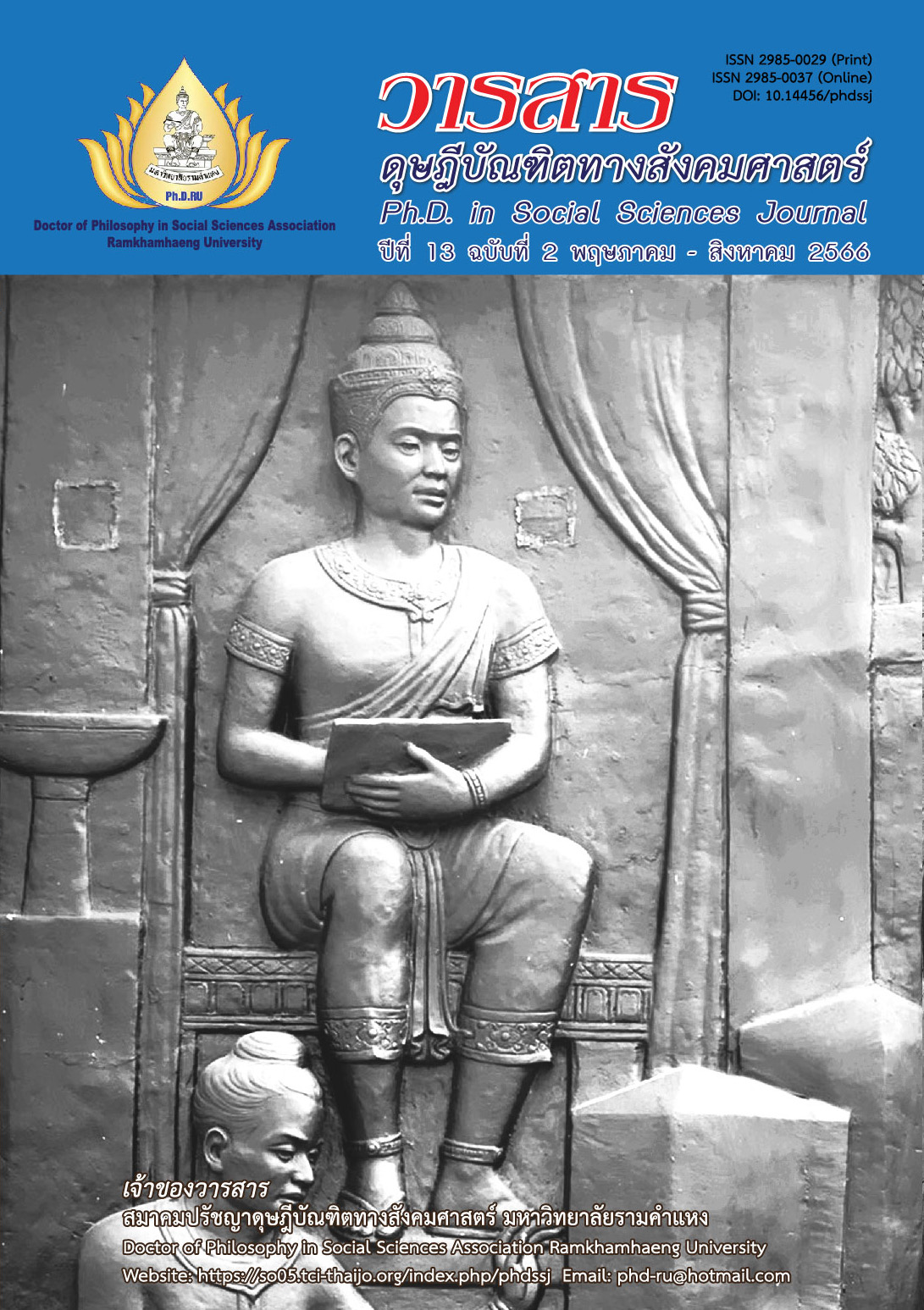The Scenario Model for Chinese Language Education in Private Schools at the Primary Level in Thailand
Main Article Content
Abstract
This research article aims to study (1) the conditions of Chinese language education in private schools in Thailand; (2) constructs a scenario model for Chinese language education in private schools at the primary level in Thailand; and (3) evaluates the constructed model. The key informants were seventeen experts. Using the technique of Ethnographic Delphi Futures Research (EDFR), the research instrument was a structured in-depth interview form. The key informants were seventeen experts.
Findings are as follows: (1) The conditions of Chinese language education in private schools at the primary level in Thailand are in accordance with the National Education Act. However, certain problems exist such as a lack of personnel with specific skills; outdated textbooks; and insufficient budget. (2) The scenario model for Chinese language education in private schools at the primary level in Thailand is as follows; the aspect of policy, the aspect of educational goals, the aspect of curriculum, the aspect of instruction and study, the aspect of textbooks and instructional media, the aspect of teachers, the aspect of students, the aspect of environment, the aspect of measurement and evaluation, and the aspect of cooperation networks. (3) The aspect of an evaluation of the scenario model for Chinese language education in private schools at the primary level in Thailand should be developed in a continuous manner.
Article Details

This work is licensed under a Creative Commons Attribution-NonCommercial-NoDerivatives 4.0 International License.
Academic articles, research articles, and book reviews in the Ph.D. in Social Sciences Journal are author’s opinions, and not the publisher’s, and is not the responsibility of the Ph.D. in Social Sciences Journal Philosophy Association, Ramkhamhaeng University. (In the case that research is done on human, the researcher has to be trained in Ethics for Doing Research on Human Training and has to produce the evidence of the training).
References
Chulalongkorn University, Institute of Asian Studies, Chinese Studies Center. (2008). Teaching Chinese in Thailand primary level. Author. [In Thai]
Good, C. (1973). Dictionary of education. McGraw-Hill.
Joyce, B., & Weil, M. (1985). Models of teaching (2nd ed.). Prentice Hall.
Keeves, P. J. (1988). Educational research, methodology, and measurements: An international handbook. Pergamum.
Kitroongrueng, N. (2002). Learners are important and write a learning management plan of professional teachers. Satapornbooks. [In Thai]
Ministry of Education. (2008). Guidelines and learning outcome measures. Author. [In Thai]
Ministry of Education. (2014). Announcement of the Ministry of Education on the reform policy for Chinese language teaching. Author. [In Thai]
Mongkolsit, S. (2019). The strategy of collaboration network for the development of educational management of private schools in Chonburi. Journal of MCU Nakhondhat, 6(1), 5843-5859. [In Thai]
Office of the Education Council. (2010). Research report for the development of a Chinese language teaching management system in Thailand overview. Author. [In Thai]
Poolpatarachewin, C. (2003). Future research practices with EDFR. Journal of Education Studies, 32(1), 1-39. [In Thai]
Sawatpanich, K. (2002). Teaching reading in primary school. Kurusapa Printing Ladphrao. [In Thai]
Sinlarat, P. (2019). General education courses: Principles and procedures (4th ed.). Chulalongkorn University Press. [In Thai]
Somboon, T. (2019). Teacher professional (2nd ed.). Ramkhamhaeng University Press. [In Thai]
Teachers Professional Promotion Subcommittee of the Teachers Council of Thailand. (1990). Good teacher traits. Author. [In Thai]
The United Nations Educational, Scientific and Cultural Organization. (2018). Issues and trends in education for sustainable development. Retrieved from https://en.unesco.org/sites/default/files/issues_0.pdf


